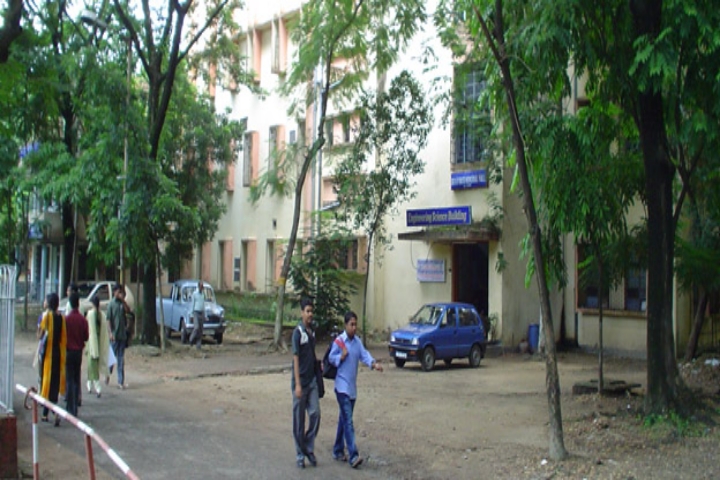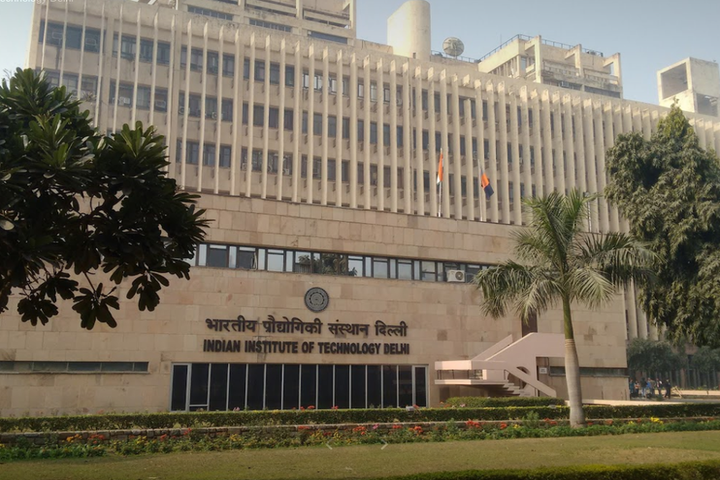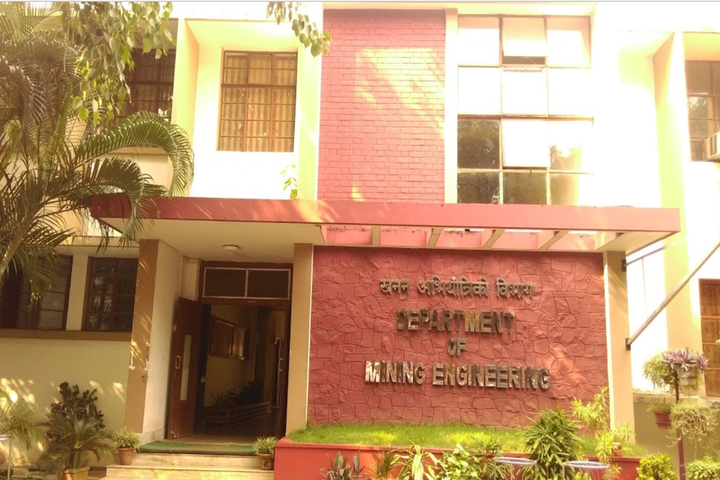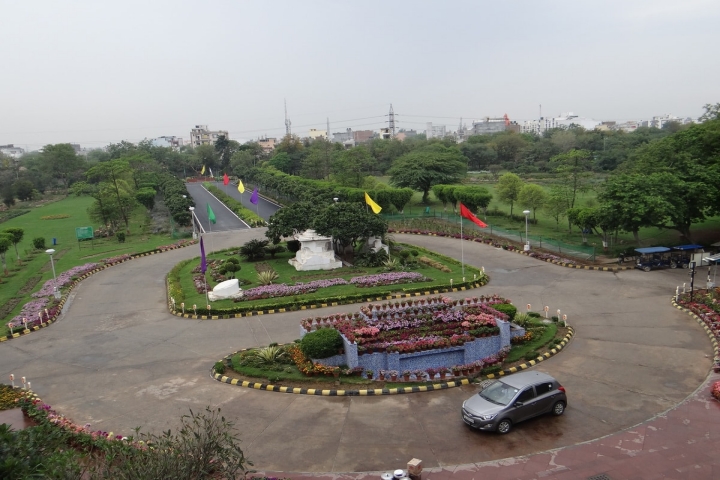
Biochemical Engineering Course Details - Fees, Subjects, Syllabus, Duration, Eligibility, Career Scope
Degrees offered: B.E /B.Tech, Ph.D, M.E /M.Tech., M.Sc., BS
What is Biochemical Engineering
Biochemical Engineering is a specialised interdisciplinary field consisting of biotechnology and chemical engineering. It involves the study of how basic raw materials are converted to finished products by means of rigorous processes. It involves the study of how basic raw materials are converted to finished products by means of rigorous processes. Many industries rely on biochemical engineering and there is a vast scope in both domestic and foreign markets.
The biochemical engineering course provides you with strong training in various engineering concepts like process engineering, biochemistry, material balance, thermodynamics, and reaction kinetics, to name a few. As the name suggests, biochemical engineering blends elements of both biotechnology and chemistry and deals with natural raw materials or life processes used for manufacturing purposes.
Biochemical Engineering Course Details- Highlights
| Particulars | Values |
|---|---|
Course Type | Diploma, UG, PG, Doctoral Level |
Duration of the programme | UG: 4 years PG: 2 years |
Admission Process | Direct college exams, common entrance exams and academic qualifications |
Top Entrance Exams | JEE Main, JEE Advanced, and GATE |
Average Salary (per month) | Around Rs. 3 - Rs. 20 lakhs |
Career Option | Chemical Engineer, Biochemical Engineer, Technician, Scientist, Process Engineer, Plant operator, Research scientist, Optimisation Engineer, Lecturers, Professors, Advisor/Consultants |
Top Recruiters | Rasi Seed, Ranbaxy, Biocoin, Bharat Serum, Lupin, Bharat Biochemical, Orchid Chemicals and Pharmaceuticals Ltd. |
Eligibility Criteria (UG & PG) of Biochemical Engineering
To be eligible for admission into a Biochemical Engineering course, students must meet certain criteria. These requirements may vary by institution, but they are generally essential for enrollment.
Eligibility Criteria for UG Courses
The eligibility criteria for undergraduate Biochemical Engineering courses are a set of requirements that applicants must meet to secure admission into their chosen institution. These criteria can be found on the official course website of the respective institution. Below, you'll find the eligibility criteria for undergraduate courses in Biochemical Engineering.
| Eligibility Parameters | Details |
|---|---|
| Educational Qualification | 10+2 in the Science stream from a recognised institute in India |
| Minimum aggregate score | 50-60 per cent aggregate score |
| Aggregate score requirements for reserved Categories | 5-10 per cent relaxation for candidates belonging to the reserved categories. |
Top Entrance Exams for UG Courses
Eligible candidates should appear for relevant entrance examinations. Some of the popular entrance examinations for undergraduate courses in Biochemical Engineering are mentioned below.
| Entrance Exams | Exam Level | Conducting Body |
|---|---|---|
| JEE Main | National-level | National Testing Agency |
| JEE Advanced | National-level | National Testing Agency |
Eligibility Criteria for PG Courses
Candidates interested in pursuing postgraduate courses in Biochemical Engineering must ensure they meet the eligibility criteria. Before applying for admission, they should verify that they fulfil these requirements. Below are the eligibility criteria for postgraduate-level Biochemical Engineering courses:
| Eligibility Parameters | Details |
|---|---|
| Educational Qualification | BTech or BE in a relevant discipline |
| Minimum aggregate score | 50-60 per cent aggregate score |
| Eligibility requirements for reserved categories | 5-10 per cent relaxation for students belonging to the reserved categories. |
Top Entrance Exams for PG Courses
Similar to undergraduate courses, admission to the postgraduate course also depends on entrance exams. GATE is a prominent entrance examination for postgraduate courses in Biochemical Engineering.
| Entrance Exams | Exam-Level | Conducting Body |
|---|---|---|
| GATE | National-Level | Indian Institute of Technology, Roorkee |
College Predictors VIEW ALL
Scope of Biochemical Engineering in India and Abroad
Biochemical Engineering offers job security just like other engineering degrees. While industrial exposure and opportunities are very unique. It is blended with cutting-edge technologies and large systems-based production facilities that industries often find challenging.
In India, the Pharmacy industry is huge and has good potential. Some other sectors include food technology, leather, plastic, and polymer technology. The biochemical engineering and allied industries in foreign countries have even more prominence and open up a multifold of opportunities. The industrial strongholds of the United States, Britain and Germany are some of the classical giants of process-oriented industries. A career abroad in the Biochemical Engineering industry is a fruitful one with many alluring opportunities.
Course Fees Biochemical Engineering
| Minimum Fees | Maximum Fees | |||
|---|---|---|---|---|
| Private | Government | Private | Government | |
| UG | ||||
| PG | ||||
| DOCTORAL | ||||
Course Subjects
The course curriculum of the UG and PG levels generally includes concepts in chemical engineering, biology and biochemistry, with a focus on the design and development processes and equipment for biological products. Discussed below are the undergraduate and postgraduate course syllabus of Biochemical Engineering.
Biochemical Engineering Syllabus for UG Courses
The course curriculum of the Biochemical Engineering course varies based on the institution; some of the subjects offered in the Biochemical Engineering course at the undergraduate level include Engineering Mathematics, Chemical Engineering, and Fundamentals of Biochemistry. In the table below, we have mentioned the B.Tech Biochemical Engineering syllabus of IIT Delhi.
Semester- I | |
Introduction to Electrical Engineering | Introduction to Electrical Engineering (Lab. |
Introduction to Engineering Visualisation | Electromagnetism & Quantum Mechanics |
Calculus | Physics Laboratory |
Product Realisation through Manufacturing | Introduction to Engineering (Non-graded) |
Professional Ethics and Social Responsibility-1 (Non-graded) | Language and Writing Skills-1 (Non-graded) |
Semester- II | |
Engineering Mechanics | Introduction to Computer Science |
Introduction to Chemistry | Linear Algebra and Differential Equations |
Chemistry Laboratory | Professional Ethics and Social Responsibility-2 (Non-graded) |
Language and Writing Skills-2 (Non-graded) | - |
Semester- III | |
Introduction to Materials Science and Engineering | Transport Phenomena |
Introductory Biology for Engineers | Principles of Biochemistry |
General Microbiology | Mass and Energy Balances in Biochemical Engg. |
Semester- IV | |
Heat Transfer for Chemical Engineers | Chemical Reaction Engineering- |
Fluid Mechanics for Chemical Engineers | Environmental Science |
Differential Equations | Humanities Elective-1 |
Semester- V | |
Molecular Biology and Genetics | Mass Transfer- |
Process Dynamics and Control | Chemical Engineering Laboratory-I |
Bioprocess Engineering Laboratory | Bioprocess Engineering |
Humanities Elective-2 | - |
Semester- VI | |
Chemical Engineering Laboratory-II | Humanities Elective-3 |
Fluid Solid Systems | Bioinformatics |
Enzyme Science and Engineering | Bioprocess Technology |
Semester- VII | |
Humanities Elective-4 | B.Tech. Project |
Bioseparation Engineering | Bioprocess Plant Design |
Recombinant DNA Technology | |
Biochemical Engineering Syllabus for PG Courses
The syllabus of Biochemical Engineering at the postgraduate level includes subjects like Bioprocess Principles and Technology, Enzyme Technology and Applications, and Microbial Biochemistry. In the table below, we have mentioned the M.Tech Biochemical Engineering syllabus of the postgraduate course of Delhi University.
Semester- I | |
Bioprocess Analysis and Reactor Design | Microbial Biochemistry |
Elective- I | Elective- II |
Elective-III | Open Elective |
Semester- II | |
Bioprocess Analysis and Reactor Design | Microbial Biochemistry |
Elective- IV | Elective- V |
Elective- VI | Open Elective |
Semester- III | |
Seminar | Major Project |
Elective- IV | Elective- V |
Elective- VI | - |
Semester- IV | |
Dissertation | - |
Careers in Biochemical Engineering
Biochemical Engineering offers opportunities in a wide range of traditional industries, allowing you to choose based on your interests. Specialising in process engineering, it is a field in high demand in major factories and production units that rely on batch production.
However, there is a particular emphasis on the need for engineers in bioprocess-related areas, which include pharmaceuticals, chemicals, and food processing sectors. Overall, biochemical engineers have access to a vast number of opportunities across diverse fields. The following compilation will provide a brief overview of the nature of jobs and industries in this field.
| Job Profiles | Job Description |
|---|---|
Chemical Engineers are professionals who handle the technical problems related to the ground-level execution of the project. It can be either the design or the implementation of the process/production. It is very competitive and requires a sound knowledge of process engineering. | |
Biochemical Engineers' jobs are typically production unit-based jobs. One needs to take stock of the usual processes and constantly strive to optimise the value of production and expenses. | |
Scientists are professionals who work on research projects that provide outputs that can be further taken up by industries and collaborators. | |
Technicians are professionals who handle the equipment and tools at the site of a company or in a laboratory. They are responsible for the installation, maintenance and repair of systems. |
Upcoming trends
Biochemical Engineering is a dynamic field that combines principles of biology and chemistry with engineering to create solutions for a wide range of applications. The field is continually evolving. These advancements are shaping the future of Biochemical Engineering, mentioned below are the upcoming trends in the field of Biochemical Engineering.
- Tissue Engineering
- Artificial Enzymes
- Wearable Devices
- Nanoshells for Cancer Therapy
- Kinetic Models in Bioprocessing
- Microbial Fuel Cells
Job Profiles and Top Recruiters
Students, after completing Biochemical Engineering, can work in various areas such as Chemical Manufacturing, Scientific Research and Development, Medicine, and Pharmaceuticals. Some of the top recruiters in the field of Biochemical Engineering are mentioned below:
Top Recruiters:
- Rasi Seeds
- Wockhardt Limited
- Ranbaxy
- Monsanto to Biotech
- Philips Healthcare
- Godrej Industries Limited
- Bharat Serum
Average Salary
The biochemical engineering course offers a wide array of career options. The industry determines salaries based on roles, which can be quite attractive for those with talent. However, it’s worth noting that the pay range for entry-level jobs may not be as high as in other engineering fields. This diverse field certainly provides numerous opportunities for growth and advancement.
| Job Profiles | Average Salary |
|---|---|
Chemical Engineer | Rs. 5 LPA |
Biochemical Engineer | Rs. 3.6 LPA |
Scientist | Rs. 9 LPA |
Technician | Rs. 3.5 LPA |
Salary Source: Ambitionbox
Required Skillset for Biochemical Engineering
Candidates interested in pursuing Biochemical Engineering are required to have certain specific skills to do well in their careers. These skills will help the students both academically and professionally. Mentioned below are the necessary skill sets for the Biochemical Engineering course.
- Technical Skills
- Problem-Solving Skills
- Numerical Ability
- Analytical Skills
- Attention to Detail
- Ability to work under pressure
- Good Communication Skills
Course Curriculum for Biochemical Engineering
The Biochemical Engineering curriculum is designed to equip students with a solid foundation in chemical engineering principles, while also delving into the biological sciences. It covers subjects like Biochemistry, Microbiology, Bioprocess Engineering, and Genetic Engineering.
The course emphasises the application of engineering principles to biological systems, enabling students to work on cutting-edge technologies in industries such as pharmaceuticals, biotechnology, and environmental engineering.In addition to core subjects, the curriculum includes practical lab sessions and industry-oriented projects to provide hands-on experience to the students.
Popular Biochemical Engineering Entrance Exams in India
GATE
Declaration of Result: 19 Mar, 2026
JEE Advanced
Application Process: 06 Apr, 2026 - 02 May, 2026
TS PGECET
Application Process: 27 Feb, 2026 - 06 May, 2026
IELTS
Exam Date: 05 Mar, 2026
Frequently Asked Questions (FAQs)
Question: Are biochemical engineers in demand?
Answer :
Yes, Biological Engineers are in great demand, Biological Engineering is a multi-disciplinary field, and according to the data available online, the field is projected to grow substantially in next few years.
Question: What is the qualification of a Biochemical Engineer?
Answer :
To become a Biochemical Engineer, candidates can either obtain a Bachelor's degree in Biochemical Engineering or after that, they can opt for Master's and doctoral degrees in Biochemical Engineering. They can also opt for internships or short-term courses to gain hands-on experience while pursuing their degrees.
Question: What is the scope of Biochemical Engineering?
Answer :
There is a wide scope in the field of Biochemical Engineering, India's pharmaceutical industry is very wide, and recent advancements in this industry have significantly influenced India's economy.
Question: What are the top recruiters in the field of Biochemical Engineering?
Answer :
Some of the top companies recruiting the graduates are Rasi Seeds, Wockhardt, Ranbaxy, Monsanto to Biotech, Philips Healthcare, and Godrej Industries Limited.
Question: What are the different subjects taught in Biochemical Engineering?
Answer :
Some of the subjects taught in Biochemical Engineering are Introduction to Biology for Engineers, Principles of Biochemistry, General Microbiology, and Chemical Reactions Engineering.
Question: What is the average salary of a Biochemical Engineering graduate?
Answer :
The salary of a Biochemical Engineering graduate depends on many factors such as the location of the job, the skills and experience of the candidate, and the job profile chosen by the candidate. The average salary typically ranges from Rs. 3 LPA to Rs. 20 LPA depending on the job role and experience of the student.
Question: What are some popular entrance examinations for Biochemical Engineering?
Answer :
There are many entrance examinations, and many universities and colleges conduct their entrance exams for admissions. Some of the popular entrance examinations are JEE Main and JEE Advanced for undergraduate courses, and GATE for postgraduate programmes.
Question: What are the different career options in the field of Biochemical Engineering?
Answer :
Out of many career options, some of the most popular ones are Chemical Engineer, Biochemical Engineer, Technician Scientist, Process Engineer, Plant Operator, Research Scientist, Optimisation Engineer, and Advisors.
Question: What is the duration of Biochemical Engineering course?
Answer :
The course duration of Biochemical Engineering varies depending on the level of education. Generally, the undergraduate course is four years long and the postgraduate course is two years long.
Question: What is Biochemical Engineering?
Answer :
Biochemical Engineering is a specialised branch of Engineering that applies technology to design, analyse, and optimise biological systems and processes.









.jpg)















